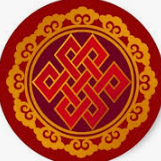Why be a Buddhist Monk in Thailand?
-
Recently Browsing 0 members
- No registered users viewing this page.
-
Topics
-
Popular Contributors
-
Latest posts...
-
8
Good quality oven for bread
Why don't they have furniture, why do they cook outside? My misses does all her cooking in a wok over an open flame. Took me a year to teach her to use a microwave. She still can't understand a fridge. -
8
Good quality oven for bread
I'm an Electrolux fan, unless sily priced, and doesn't need to be. Our table top is a major upgrade of he previous non Electrolux oven. 230°C max time, but with fans ovens, may even hit 350°, maybe. More than enough for any baking needs, as I make my own bread, almost weekly. Along wth Cheescake, both requiring high temps. Bread on max for 13 mins, then ~175° / 180° for 15-17mins, fans off. Cheesecake need 200°C for ~25-30 mins. Our 56L, but has been discontinued. https://www.electrolux.co.th/en-th/search/?text=oven -
17
Putler images banned
How do you carry that enormous chip on your shoulder around? Must be very heavy for a snowflake especially. No-one in this thread has misspelled Putin's name deliberately which is what is not allowed. A "Putler" is a composite image and that is the subject of discussion, the banning of these composite images. It's hilarious how triggered you guys get, so easily. Snowflakes. -
107
Tipping
So is tipping to show appreciation for above-standard service or to support non-livable wages of poorly paid staff? Not sure about Thailand. But back home, if the main purpose was intended to reward above-average service, then it has become a joke because it's practically mandatory so we are tipping even when service is bad. -
48
Security Check Before Flight.
I'm pretty sure that's mot such an unusual occurrence. I think it happened tome in Thailand. I went through all the usual checks when I first entered the security zone, and then, at the departure gate, they did it again. The second time, they found a nail clipper in key shaving kit and confiscated it. I guess It was "dangerous." -
49
The Boy Who Cried Wolf aka TACO
Naw they are the apolitical drunks, druggies and assorted Cambodian expat loons. Couple of tranny chasers too, they probably hate Trump like most deviants do
-
-
Popular in The Pub
-




.thumb.jpg.bc523c85a8d558dbc282dca7a2e602c9.jpg)






Recommended Posts
Create an account or sign in to comment
You need to be a member in order to leave a comment
Create an account
Sign up for a new account in our community. It's easy!
Register a new accountSign in
Already have an account? Sign in here.
Sign In Now